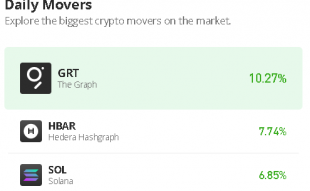Join Our Telegram channel to stay up to date on breaking news coverage
Mayama Kesselly, a teacher in Pennsylvania, claimed she was dubious when a coworker pushed her about a potential investment in cryptocurrency, one of the world’s most volatile financial markets that have won the praise of Silicon Valley CEOs and high-profile figures from Hollywood.
She and her husband went all-in immediately after her initial investment in VBit Technologies, a cutting-edge bitcoin mining business founded by one flamboyant Philadelphia entrepreneur, began to generate sizable profits last spring.
The Bristol couple borrowed $50,000 to purchase the top-of-the-line “Black Diamond” mining kit from the business and quickly began earning as much as $9,000 a month in profits.
Suing Vbit Technologies for a cryptocurrency scam
Over time, Ms. Kesselly developed a reputation as a sort of evangelist for VBit, recruiting close acquaintances through the business’s pyramid-style “affiliates” scheme and investing her earnings into other packages rather than repaying her initial payment.
It was a choice she would later come to regret greatly.
“I receive phone calls from customers wondering when they will repay their money,” stated Ms. Kesselly.
In what has grown to be Pennsylvania’s biggest cryptocurrency scandal, VBit’s 34-year-old CEO, Don Vo, vanished in January after selling the company for $105 million to a Chinese company that had not disclosed its ownership in public records. As a result, clients lost millions of dollars worth of bitcoin.
The founder’s sudden escape marked the end of a year in which company executives spent lavishly, partaking in fine dining and wine at some of Philadelphia’s most expensive establishments while boasting on social networks about giving their top performers luxury sports cars and private yacht cruises.
The company is currently under investigation by state financial watchdogs. In addition, the U.S. Securities and Exchange Commission has received complaints about the company. A lawsuit has been filed alleging massive securities fraud and what is purported to be a Ponzi scheme. The company once promised investors enormous returns.
Customers described a months-long downhill spiral that started with the sudden change in ownership and ended with being denied access to their laptops and cryptocurrencies.
“I feel very ashamed. I’m very heartbroken, “said Ms. Kesselly. I’m not even sure how to raise my head.
Ms. Kesselly, her spouse, and several coworkers and friends are part of the thousands of investors worldwide—around 15,000 in all—trying to retrieve bitcoin worth over $11 million currently unavailable in company-controlled accounts.
And over 100 Pennsylvanians who’d been lured in by the claims from a corporation whose headquarters were in busy South Philadelphia were among the consumers who are becoming increasingly sore and unhappy.
It was quite well-liked in Pennsylvania, according to Ms. Kesselly. “Here in Philadelphia, everyone agreed that it was a wonderful thing. Everyone was only including their family members in this. ”
The 2022 worldwide meltdown of cryptocurrency markets, which erased an era of widely publicised profits and destroyed an approximated $1 trillion in value in May and June, has also exposed a nascent industry with no regulation and is rife with fraud.
While investing in cryptocurrencies on a licensed exchange is legal, the market is riddled with scams to make quick money. According to the Federal Trade Commission, consumers have reportedly lost over $1 billion in cryptocurrency fraud cases since last year. However, the actual amount is likely substantially higher because several losses go unacknowledged.
The Pittsburgh Post-Gazette repeatedly requested an interview with Mr Vo, the former employee of VBit Technologies, but neither he nor key executives from the company’s successor, Advanced Mining Group, have answered.
Investors Cannot withdraw amounts in the Account.
The losses represent a sharp turn in VBit’s fortune from when it was riding the pinnacle of the crypto wave in 2021. During the summer, Mr. Vo sent a message on his account on Twitter that perfectly encapsulated the spirit of the bitcoin surge.
The former CEO said, “Purchased 20 [bitcoin] at $29.5k before I departed for holidays a week ago,” and included a picture of himself relaxing with a glass of wine and a picture of the beach in the backdrop. “Now a content camper, as I sat on a luxury boat.”
A self-described financial genius whose firm provided the common shareholder with a chance to capitalise on the bitcoin mania escalating into a purchasing frenzy, Mr. Vo was hailed as Pennsylvania’s cryptocurrency luminary in local media.
Customers may invest in a powerful bitcoin mining machine through VBit, which the business maintains at one of its outlying locations. VBit would refund a piece of the bitcoin it had mined each month.
The goal of VBit’s countrywide network of affiliates, including Ms. Kesselly, was to serve as regional leaders by employing word-of-mouth strategies to demystify the intricacies of cryptocurrency and convince friends and coworkers to sign up for the company’s packages.
Some affiliates were more astute, hosting unofficial Zoom sessions that promoted VBit’s promise or sharing one of the business’ promotional YouTube videos, which feature animations of colourful characters investing their way to a zen-like state of financial contentedness while dollar signs swirl around them.
Beginning only with the “Silver Offer,” users may purchase a basic mining machine and hosting services for $2,443. After the bitcoins were mined, users had the option of withdrawing them from their corporate wallet and exchanging them for dollars, or they could choose to let them accrue, as many users did when the value of the cryptocurrency was rocketing higher.
Because even one computer uses a lot of electricity, using bitcoin has been expensive since the beginning. According to some calculations, one transaction uses as much energy as the typical home uses in 50 days. It generates approximately 75 decibels of noise, similar to the sound of a vacuum cleaner running continuously.
Because energy costs were low and there was a low chance of noise complaints, Mr. Vo positioned his business as a service for the average investor by hosting their power-guzzling, loud PCs at VBit’s distant locations in Montana and Alberta, Canada.
Steve Reniari, a Nevada-based marketing expert and crypto enthusiast, invested in VBit just as the industry took off.
He spent $129,674 on a Black Diamond trading subscription and hosting services at the beginning of 2021, with 50% of the entire cost owed.
He started to observe significant shifts in May, around the time that Bitcoin had a global meltdown.
Payouts that usually arrived in hours started to take days after a month. They then require weeks. Then they completely froze.
Customers sought an answer from Advanced Mining Group right away. At the same time, the firm was going through internal conflict due to the recently appointed COO leaving the organisation just after three weeks.
VBit has been under scrutiny before. In 2020, doubts started to arise among crypto experts about the dubious success stories posted by VBit’s founder on his Instagram account.
Read More
Join Our Telegram channel to stay up to date on breaking news coverage


